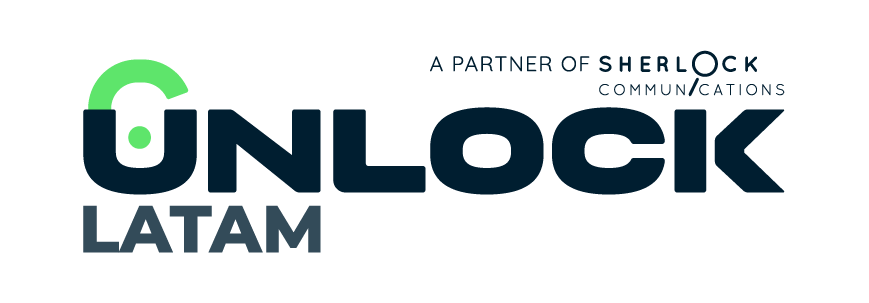Event Strategy for SaaS Companies: Should You Attend or Organize?
In the highly competitive SaaS landscape, events are more than just marketing channels; they are strategic growth levers. Events drive awareness, build trust, and create direct interaction with prospects, customers, and even investors.
But when it comes to deciding how to leverage events, SaaS companies often face a critical question: should we attend third-party events or host our own? In this guide, we’ll explore how to build a winning Event Strategy tailored to your company’s goals, maturity, and budget.
The Importance of Events in SaaS Marketing
Events are powerful touchpoints that allow SaaS companies to position themselves as trusted leaders. Whether physical or virtual, events create unmatched opportunities for storytelling, demoing products, and listening to user feedback in real time.
A well-crafted Event Strategy strengthens your brand positioning, shortens sales cycles, and fosters long-term customer loyalty. Events are no longer optional—they are foundational to building community and expanding influence.
Attending Events: Pros and Potential ROI
Participating in industry events can be a low-risk, high-return move. By joining established conferences, you tap into a built-in audience, gain visibility through presence, and learn from competitors and thought leaders.
It’s an efficient way to connect with new prospects, collect market intelligence, and test messaging. Especially for startups, attending events is a smart way to build brand awareness without the operational complexity of hosting.
Organizing Events: Control, Data, and Brand Equity
Hosting your own event, whether it’s a product demo, virtual workshop, or full-scale user summit, gives you full control. You set the agenda, craft the narrative, and shape the entire user experience to match your goals.
You also own the data. Registrations, surveys, engagement rates all offer deep insights into your audience. This helps you optimize future campaigns, tailor content, and drive meaningful product improvements.
Organizing events also boosts brand authority. You become the central hub for dialogue in your niche, attracting partners, customers, and talent.
Check out the top SaaS events trends to watch in 2025
Cost vs. Impact: Which Investment Pays Off?
Attending events usually involves lower upfront costs: ticket fees, travel expenses, and modest branding. But your exposure is often diluted in a crowded venue filled with competitors and distractions.
Organizing events demands more resources: venue planning, tech setup, speaker recruitment, promotion, but delivers long-term impact. You’re not just seen; you’re remembered. You build trust, collect feedback, and create a memorable brand moment.
The return isn’t always immediate, but the depth of connection and data you gain can far outweigh the initial investment.

Choosing the Right Event Strategy for Your SaaS Business
Your Event Strategy should reflect your company’s stage, goals, and target market. Early-stage SaaS teams may benefit more from attending events to learn, test, and gather contacts.
As your product matures and your customer base grows, organizing events becomes a powerful way to engage users, announce features, and build a loyal community. Think of webinars, roadshows, product launches, and customer summits.
The key is to align your events with your broader business and marketing goals, not just follow trends.
Hybrid Event Strategy: Why Not Both?
Why choose when you can do both? A hybrid Event Strategy combines the best elements of attending and organizing. Attend key industry events to stay visible, while hosting your own to dive deeper into specific topics or audiences.
You can sponsor major conferences and then invite leads to exclusive sessions or hands-on workshops. This layered approach maximizes exposure while maintaining intimacy and control.
Many successful SaaS companies adopt this dual strategy, using it to scale reach, build community, and nurture leads across multiple touchpoints.
Measuring Success and Iterating Your Approach
To truly assess the effectiveness of your Event Strategy, focus on key performance indicators (KPIs) like lead generation, attendee engagement, and overall satisfaction. Track your return on investment (ROI) by comparing event costs with tangible outcomes, such as increased brand visibility, customer retention, and sales pipeline growth.
However, success isn’t just about immediate metrics. Gather qualitative feedback through surveys and direct interactions with attendees to understand how your events shape long-term relationships and brand loyalty. As you gather data from each event, refine your strategy to improve results over time.
Adapting Your Event Strategy to Evolving Business Needs
Your Event Strategy should be flexible enough to evolve with your business. As your SaaS company grows and diversifies, so too should your event approach. What worked in your early stages may need to be adjusted as your product matures and your target audience shifts.
Remain agile and open to adapting new formats, technologies, and partnerships. Whether you’re experimenting with virtual events, embracing more interactive formats, or exploring emerging trends like hybrid experiences, your event strategy must stay aligned with both market demands and your company’s evolving objectives.
Get Started with Your Custom Event Strategy Today
Ready to take your SaaS marketing to the next level? Let’s craft a tailored Event Strategy that aligns with your goals, engages your audience, and accelerates your growth. Contact us today to discuss how we can help you execute successful events that will drive your business forward.

Your Trusted Partner in LATAM Expansion
From market research to legal compliance, we guide your business every step of the way.
